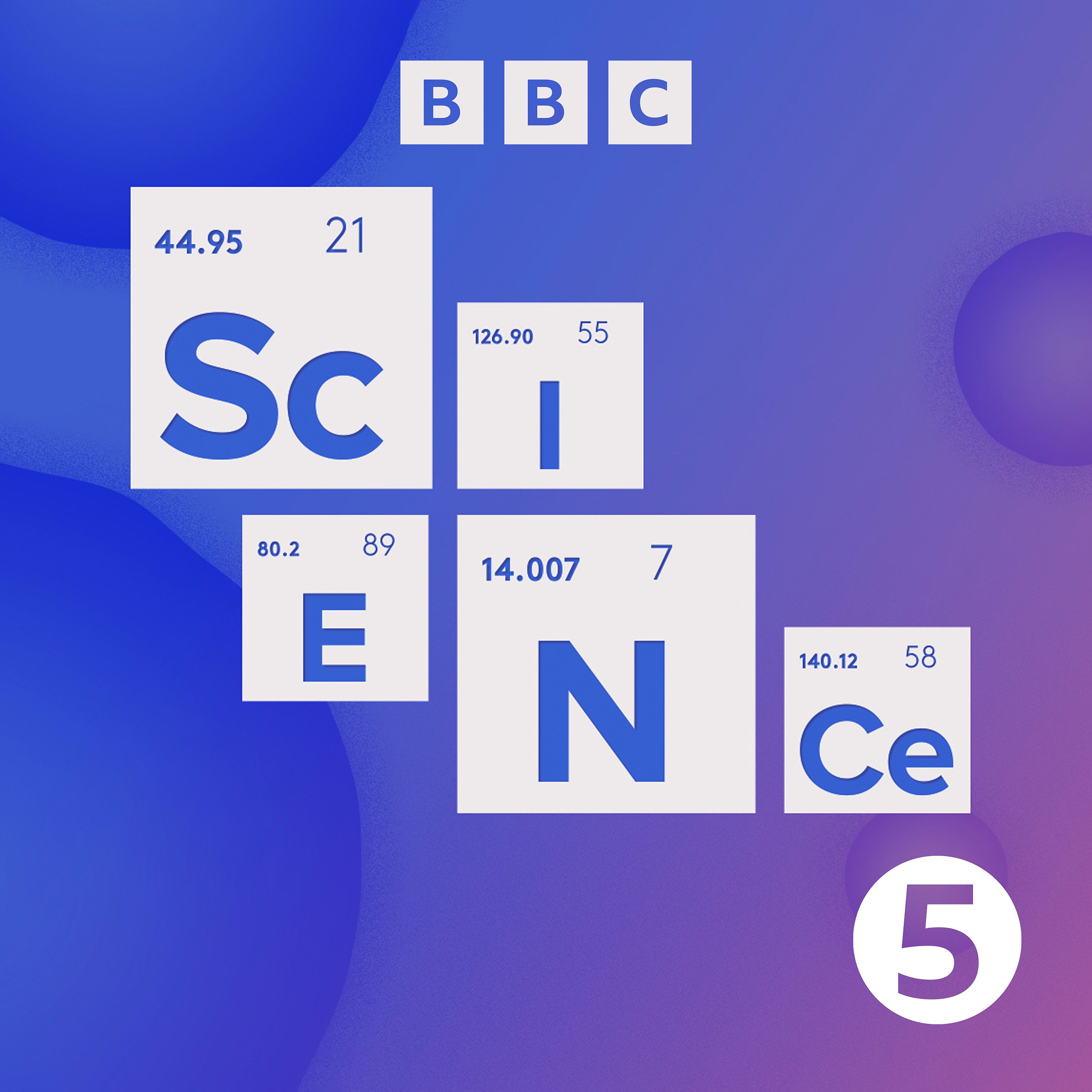

5 Live Science Podcast
BBC Radio 5 Live
5 Live's science podcast, featuring Dr Chris and Naked Scientists with the hottest science news stories and analysis.
Episodes
Mentioned books

Jan 28, 2018 • 50min
5 live Science
Two monkeys were successfully cloned this week. Are humans next? Chris Smith and the Naked Scientists explain everything you need to know.

Jan 25, 2018 • 49min
Dr. Karl
Rhod is joined by Dr. Karl to answer your science questions. They discuss the origins of litmus paper and ponders if it is possible to create a magnetic field on a planet?

Jan 21, 2018 • 49min
5 live Science
In this edition, the Naked Scientists ask; Can we pick up cancer from a blood test? How does flu work? They also take a look at crabs that drum to attract a mate, plus a look at how the perfect poison is made.

Jan 18, 2018 • 41min
Dr. Karl
Rhod is joined by Dr. Karl to answer your questions on topics like using out of service escalators; how light travels; the properties of titanium, and more.

Jan 14, 2018 • 50min
5 live Science
Can mantis shrimp really kick through glass? What happens inside a black hole? And can your genes lead you to your perfect match? The Naked Scientist settle the debates.

Jan 11, 2018 • 47min
Dr Karl
Dr Karl answers your science questions.

Jan 7, 2018 • 49min
5 live Science
The Naked Scientists look back at the best science of 2017

Dec 24, 2017 • 49min
5 live Science
Naked Scientists Chris Smith and Georgia Mills bring you a festive edition of 5 live Science.

Dec 21, 2017 • 48min
Dr. Karl
Rhod and Dr Karl answer all your science questions, from how ABS braking systems work, to whether or not the Thylacine - the Tasmanian Tiger - really existed.

Dec 17, 2017 • 50min
5 live Science
Chris Smith and the Naked Scientists review the latest science news and breakthroughs. Under the microscope this week: A breakthrough in the treatment of Huntington's disease, a fossilised tick from a dinosaur, strange radio signals from far away in space and the science of Star Wars.


